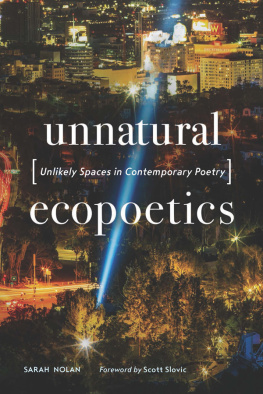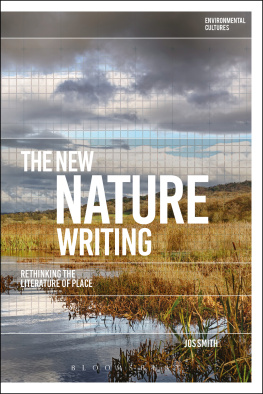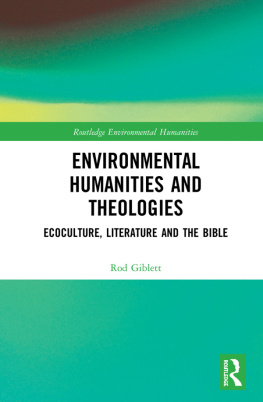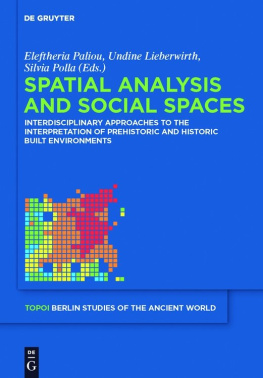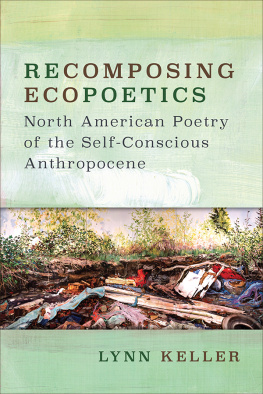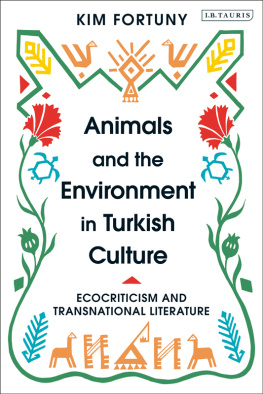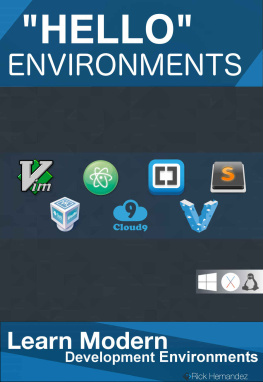Names: Nolan, Sarah, 1986 author.
Title: Unnatural ecopoetics : unlikely spaces in contemporary poetry / Sarah Nolan ; foreword by Scott Slovic.
Description: Reno : University of Nevada Press, 2017. | Includes bibliographical references and index.
Identifiers: LCCN 2016048231 (print) | LCCN 2017004070 (e-book) | ISBN 978-1-943859-27-6 (hardback) | ISBN 978-0-87417-468-7 (e-book)
Subjects: LCSH: American poetry21st centuryHistory and criticism. | American poetry20th centuryHistory and criticism. | Philosophy of nature in literature. | Ecocriticism. | Poetics. | Environment (Aesthetics) | Human ecology in literature. | Experimental poetry, AmericanHistory and criticism. | BISAC: LITERARY CRITICISM / Poetry. | LITERARY CRITICISM / American / General.
Classification: LCC PS310.N3 N65 2017 (print) | LCC PS310.N3 (e-book) | DDC 811.009/36dc23
Foreword
THE APPARENT OXYMORON embedded in Sarah Nolans phrase unnatural ecopoetics points to the latest trend in the environmental humanities, which obliterates the naive traditional idea that there is a separate nature out there, somehow environing human experience and human constructions.
This project builds deliberately and respectfully on the traditions of nature-poetry studies and experimental ecopoetics that have developed during the past several decades, paying particular attention to the energetic work in North America that has made ecopoetics a cutting-edge aspect of human-nature theory and environmental textual studies. However, it is important to remember that these are global conversations that have long been intrinsic to the ecocritical project, including Nirmal Selvamonys work in Tamil oikopoetics since the 1980s, Hubert Zapfs theorizing of Kulturkologie in Germany and application of this concept of textual ecosystems to American writing, Lu Shuyuans studies of Tao Yuanmings meditations on classical Chinese philosophies of self and other through artful parables, Niyi Osundare and Tanure Ojaides yoking of experimental and traditional language and environmental politics in the context of the Niger Delta, and Julia Fiedorczuk and Gerardo Beltrns ecopoetic exploration of the radiant web of meaningful things in multiple cultural contexts, from seventeenth-century Mexico to twenty-first-century Poland.
The three theoretical pillars of Unnatural Ecopoetics are as follows: (1) ecopoetics is a hermeneutic tool that applies to language and human cultural expression in general, not only to the specific aesthetic mode known as poetry; (2) along the lines of posthumanist and new materialist thought, the boundaries between that-which-is-human and that-which-is-not-human have collapsed into an understanding of the hybrid naturalcultural reality we inhabit physically and intellectually; and (3) self-aware textual space[s] facilitate our understanding of naturalcultural relationships. Some readers may be confused by the apparent doublespeak in the statement that ecopoetics is not concerned specifically with poetry and the tendency of ecopoetic critics and theorists to focus on poetry. Perhaps this focus simply results from the fact thatpoetry is a highly self-aware textual space, indeed one of the most self-aware modes of expression, and thus it is an ideal case study for ecopoetic analysis, although such analysis can also be applied to any other mode of discourse.
I have just returned from an international conference on ecopoetics at the University of Perpignan in southern France. Panel topics ranged from imagining islands to the politics of Sammi (indigenous Scandinavians) literature, from postcolonial ecocritical readings of South Asian fiction to studies of agricultural memoirs in the United States. In other words, the scholarly focus was all over the intellectual map. Yes, there were panels on Welsh poetry and the epistemological implications of haiku. But poetry qua poetry was not the sole domain of the meeting.
I have long been at peace with this amorphous concept of ecopoetics, but perhaps this is not the case for all scholars in the field or for readers more generally. I think Sarah Nolans work, so edgy and so grounded and clear at the same time, will contribute greatly to the understanding of what ecopoetics is and what the field does. Her historical mapping of the discipline is worth the price of the book. Her lucid and energetic readings of important texts by Ammons, Hejinian, Howe, and Goldsmith, among others, are bonuses that exemplify best current practices in ecopoetic analysis. And her adventurous speculations truly chart the futureor several possible futuresof the discipline.
Nolan, a product of the built environments of greater Los Angeles, whose ecopoetic ideas have been tempered by years of living in the Great Basin Desert on the eastern slope of the Sierra Nevada, thoroughly understands the natureculture continuum, while also recognizing and valuing the meaning of natural forces that exceed and constrain the human. She offers an ecumenical view of what an environment is and how this new era of ecopoetic theory enables readers to appreciate the materiality of texts and the textuality of the physical world.
SCOTT SLOVIC
Acknowledgments
I FIRST BEGAN WORKING on this project as a doctoral student at the University of Nevada, Reno, where I received incredible support from my advisors, especially Scott Slovic and Ann Keniston. They continually challenged me to overcome my own doubts and the various hurdles of academic writing to push this project forward. At Nevada, I also had the benefit of working with Cheryll Glotfelty, Erin James, Michael Branch, Paul Starrs, and John Sagebiel, who pushed me in directions I never would have imagined without their guidance. I owe many thanks to those who supported my preliminary ideas for this project, and particularly to George Hart for introducing me to ecopoetics and encouraging me to explore the field with curiosity and an open mind. My gratitude also goes to Bill Mohr and Tim Caron, who helped me explore my early ideas on ecopoetics at California State University, Long Beach.
I have been extremely fortunate to enjoy the friendship and intellectual stimulation of all of my colleagues in the Literature and Environment program at Nevada, especially Will Lombardi, Kyle Bladow, Andy Ross, Sylvan Goldberg, and Tom Hertweck. I also offer my sincerest thanks to my former classmate Beau Rogers for taking the gorgeous photograph of Los Angeles that appears on the front cover.
My appreciation goes out to my mother, Johanna Nolan, for her lifelong support and ongoing encouragement, and to Knox and Alice, for motivating me to always be at my best. Thanks to Jennifer, Kieran, and David for helping me reach a place where I could complete this project. My gratitude extends to my father, Myles Nolan, who I know would have been proud to see this book come to life. Finally, I owe my sincerest thanks to Jacob Harmon, who not only gives me his support and love every day, but also inspires me to be the best scholar, mother, and friend that I can be.
INTRODUCTION
The Unlikely Environments of Ecopoetics
Its my lunch hour, so I go
for a walk among the hum-colored
cabs. First, down the sidewalk

